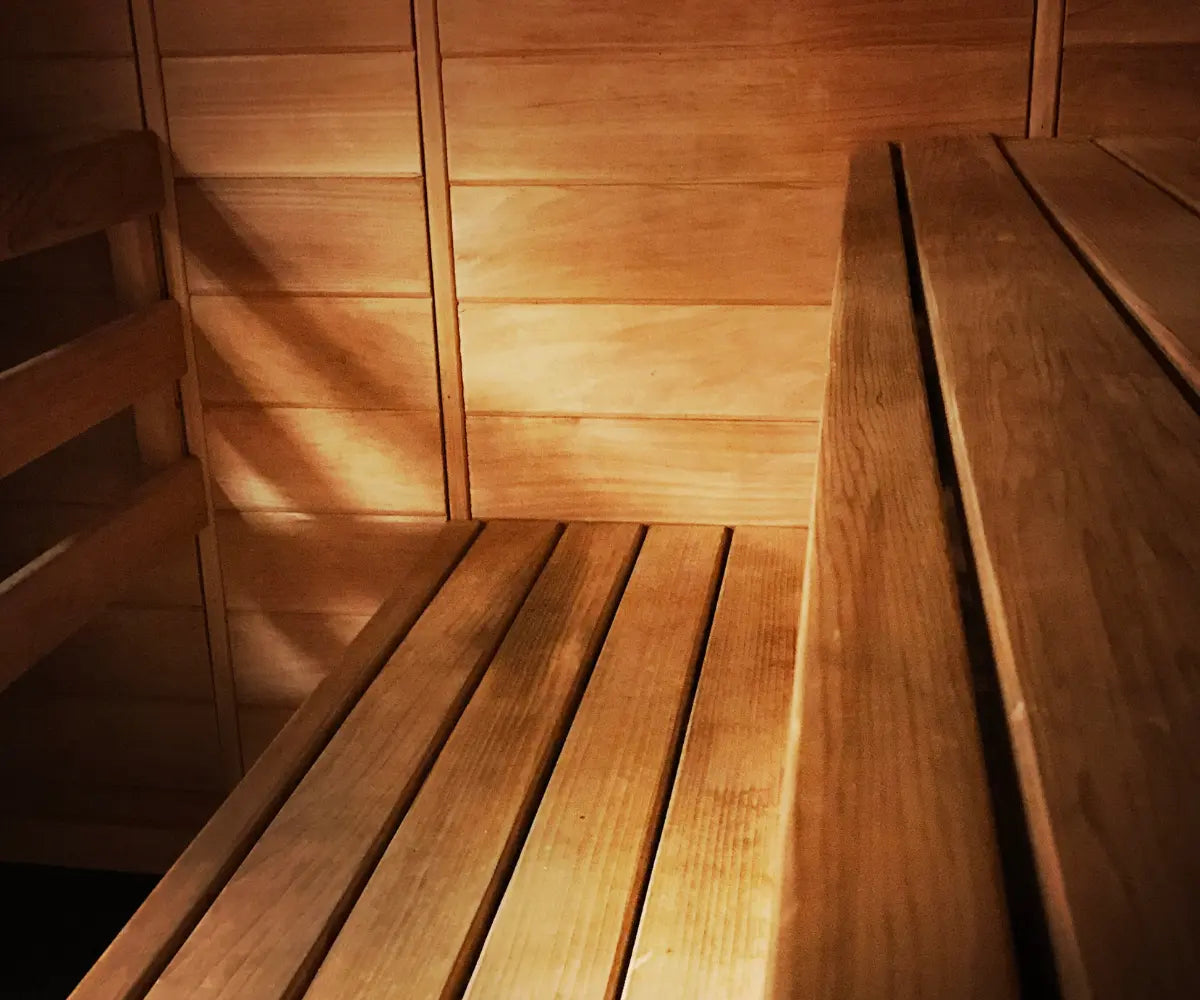The days get shorter, the temperatures drop, and many of us feel more tired and less motivated in winter. During this time of year, many people crave warmth and relaxation. A regular sauna visit not only offers a welcome way to warm up but also has numerous health benefits. Regular sauna visits have proven positive effects on health and can help prevent colds and increase general well-being [1] . Learn in this article why the sauna is considered a "winter therapy" and how you can make the most of it to stay fit and healthy during the cold season.
The health benefits of the sauna
Strengthening the immune system
Regular sauna visits train the immune system. The heat in the sauna raises the body temperature, similar to a fever, allowing the body to fight off pathogens more effectively. Studies show that people who regularly visit the sauna are less likely to get colds or flu. [2] Alternating between hot sauna and cold cooling also stimulates blood circulation and improves the reactivity of white blood cells.
Improve blood circulation and heart health
The temperature change in the sauna has a positive effect on the cardiovascular system. In the heat, the blood vessels dilate, improving blood flow. After the sauna session, the vessels contract again, acting as a gentle workout for the heart. Studies show that regular sauna visits can reduce the risk of cardiovascular disease. [3] . Especially in winter, when many people are less active, the sauna can help to stimulate the circulation.
Relaxation and stress relief
The sauna not only offers physical benefits but also has a calming effect on the mind. The heat promotes the release of endorphins, which act as natural feel-good hormones. This helps reduce stress and lift your mood. Especially during the dark winter months, when many people suffer from the winter blues, the sauna can be a valuable support. [4] .
Skin care and detoxification
Another benefit of the sauna is its effect on the skin. Sweating helps open pores and remove dirt and dead skin cells. The result is a more radiant complexion. Sweating also supports the body's detoxification process, as toxins are eliminated through the skin. [5] . Especially in winter, when the skin often becomes dry due to heating air, the sauna can help to better moisturize the skin.
How does the sauna affect colds?
A widespread myth is that you should go to the sauna if you have a cold to get better faster. However, this isn't true. If you have an acute cold, you should avoid the sauna, as your body is already weakened and the heat can put additional strain on your circulation. However, regular sauna use can have a preventative effect. Studies show that people who regularly use the sauna are less likely to develop upper respiratory tract infections. [6] .
Sauna and the effect on sleep
Sauna visits can also improve sleep. The heat relaxes muscles and promotes the release of melatonin, a hormone important for the sleep-wake cycle. Many people report that they fall asleep better and wake up more rested after a sauna visit. [7] . Especially in winter, when the sleep rhythm is disturbed by less daylight, the sauna can help to regulate it again.
Sleep plays a central role in our health. Therefore, this article may be of particular interest to you:
Lavender: Naturally relax & sleep better → Passionflower: Relaxation & better sleep.
Tips for the right sauna visit in winter
To ensure you get the full health benefits of the sauna, there are a few tips you should keep in mind:
-
Start slowly: If you've never been to a sauna before, start with shorter sessions and build up slowly.
-
Drink plenty of fluids: Sweating causes your body to lose a lot of fluids. Drink plenty of water before and after your sauna session to maintain your fluid levels.
-
Don't forget to cool down: After every sauna session, you should cool down thoroughly. This strengthens the immune system and helps the body regenerate.
-
Regularity is key: The positive effects of the sauna are best achieved with regular use. Try to go to the sauna at least once a week.
Risks and side effects of the sauna
Although saunas offer many health benefits, they are not suitable for everyone. People with heart problems or high blood pressure should consult their doctor before using the sauna. Saunas should also be avoided during pregnancy or if you have an acute infection.
Improper use can also lead to circulatory problems. Therefore, be careful not to stay in the sauna for too long and listen to your body. If you feel dizzy or unwell, you should leave the sauna immediately.
Conclusion: The sauna as a health oasis in winter
The sauna offers a variety of health benefits that are especially valuable in winter. It strengthens the immune system, improves circulation, helps reduce stress, and improves the appearance of your skin. Regular sauna use can also help combat the winter blues and improve sleep. Especially during the colder months, it's worth incorporating the sauna into your health routine.
